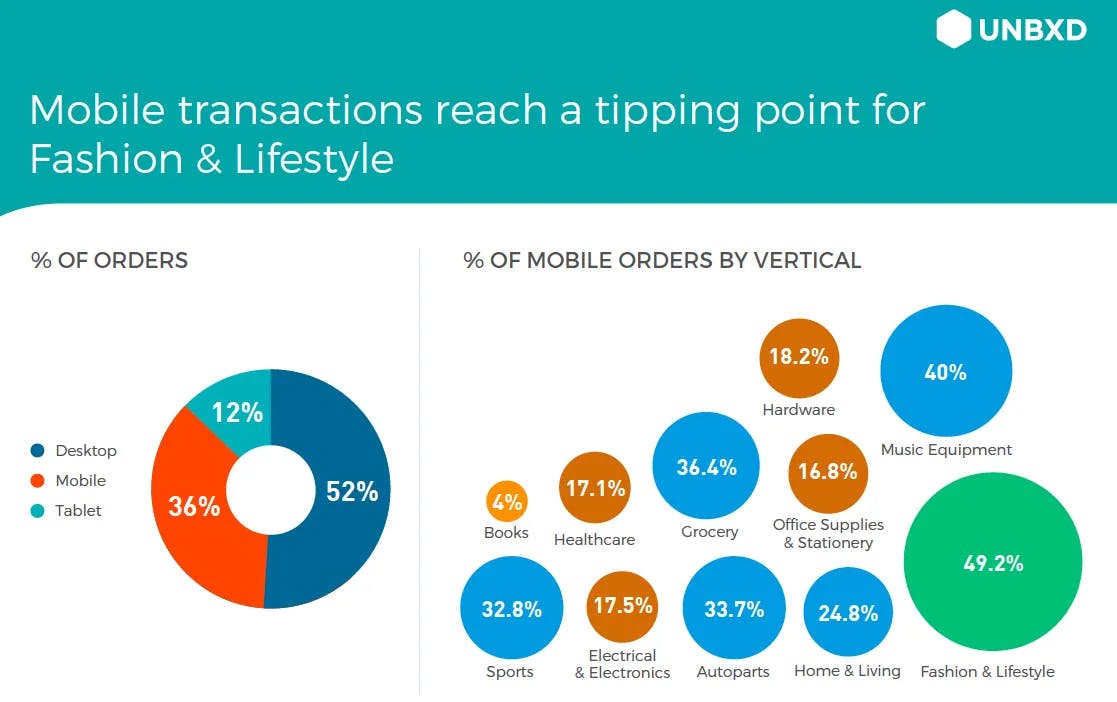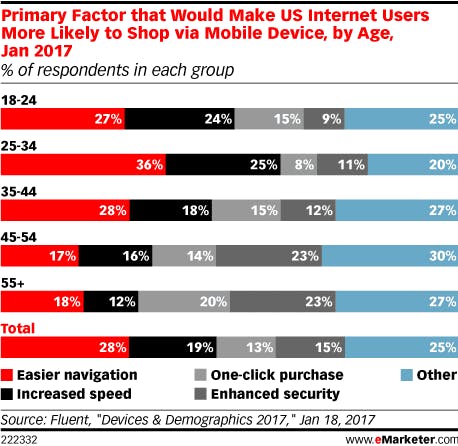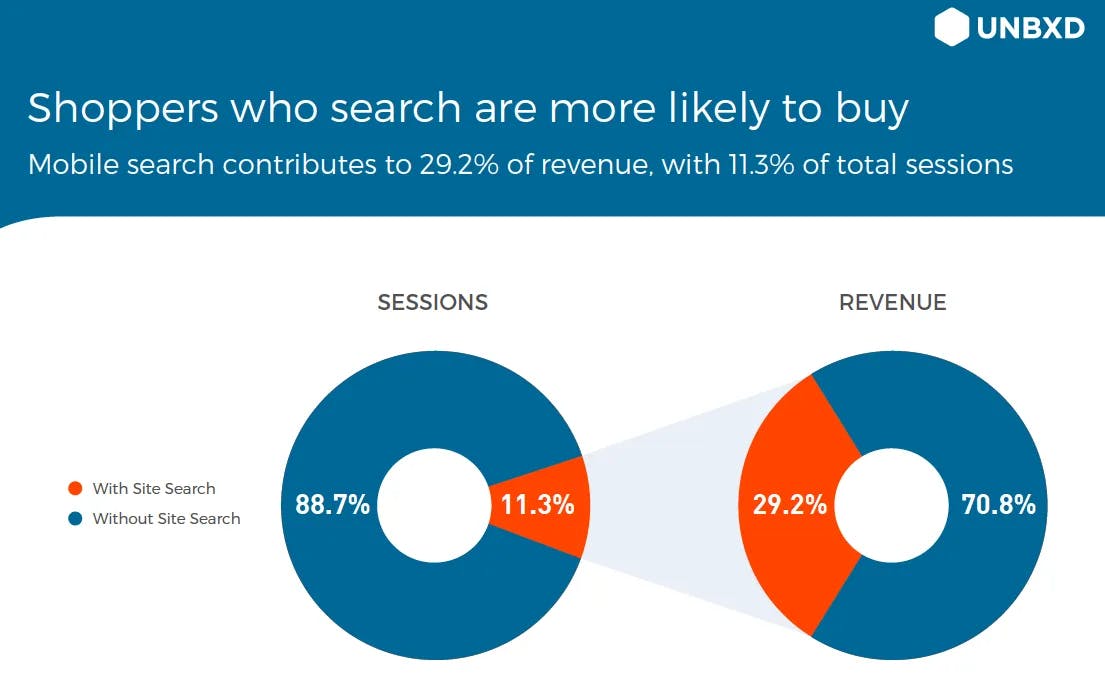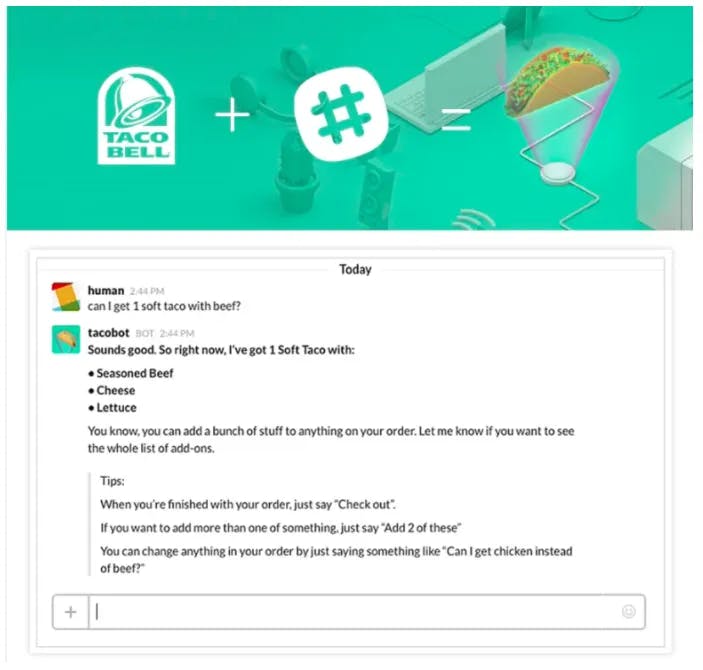
82% of smartphone users say they consult their phones before purchasing a product in-store. This signals a two-fold change in consumer shopping behavior. First, it shows that mobiles are gaining more than just popularity as a purchase channel. They are also driving retail purchases.
Search and navigation on mobile
But what motivates higher purchases on mobile?
Product discovery improvements on mobile due to AI and machine learning make it easier for shoppers to find what they want. Of course, it helps that today's smartphone is almost an extension of our arm. People can discover products much faster and, as a result, are more likely to purchase them.
As per a survey conducted early this year, around one-quarter of internet users in the US aged 18-34 state that easy navigation and speed were key factors influencing their decision to shop using mobile phones.

But purchase on mobile isn't driven by navigation alone.
Search is just as important. Search sessions have been steadily increasing since 2015 (7.6%) and touched 11.3% of all sessions in 2017. While navigation continues to dominate purchases on mobile, the exciting thing to note is the connection between search and shopper intent. Per our latest research on product discovery on mobile, shoppers searching on mobile are more likely to buy. Mobile search contributes to almost 30% of total revenue.

In addition to features like auto suggest or a simple spell check that eases the discovery process, a prominent and persistent search bar gives impetus to the growing trend of purchases on mobile—30% of mobile shoppers who search use autosuggest to reach their desired products.
AI and AR
But how about technology that helps us make better choices?
Data shows shoppers are ready for it and how. Research by Retail Perceptions showed that a whopping 71% of people would show more loyalty to a brand if they offered augmented reality as an option for shoppers. Smart bots that intelligently understand and respond to customers providing a thoroughly personalized experience are increasingly becoming popular.

Mobile apps like Taco Bell's TacoBot and Starbucks' My Starbucks Barista offer a personalized experience to users, replete with customized menus and recommendations, and facilitate quick transactions — with a sharp wit to match!
This makes the prediction by Gartner analysts a lot more accurate — they predict that by 2020, the average human will have more conversations with bots than with their spouse.
The possibilities that artificial intelligence and augmented reality open up for ecommerce are endless. Algorithms that are intuitive enough to understand the nuanced differences in shopper behavior as they move from one platform to the other, offering intelligent recommendations and personalized suggestions, have changed shopping on mobile.
The lesson to learn for anyone listening is this — you can't afford to wait to prep yourself for the coming of the mobile revolution anymore. It's already here.
In conclusion, mobile product discovery shows that technology has significantly impacted how people shop, particularly mobile devices. Fashion, in particular, has seen a rise in mobile purchases, with 82% of smartphone users consulting their phones before making a purchase in-store.
Improved product discovery through AI and machine learning, as well as easy navigation and search options, have contributed to increased mobile purchases. Clearly, the mobile revolution is here to stay, and businesses must keep up with the evolving technology to remain competitive in the market.
Are you ready to see the power of our product firsthand? Then it's time to book a demo! With our demo, you'll get a personalized walkthrough of all our features and see how our product can benefit your busine








